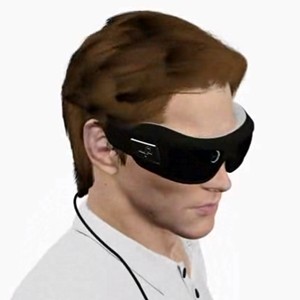7 January 2015. GenSight Biologics, a Paris-based biotechnology company, and Pixium Vision, a developer of vision restoration systems also in Paris, are collaborating with a French vision and hearing foundation to design a therapy for people with retinitis pigmentosa, a genetic disorder causing people to lose their vision over time. The project is funded by a of €18.5 million ($21.9 million) Investment for the Future grant from the French National Research Agency.
Retinitis pigmentosa is a family of inherited eye disorders that result in damage to the retina, specifically breakdown and failure of photoreceptor cells in the retina leading to progressive vision loss. The disease takes several forms, but it generally results in failure of photoreceptor cells detecting light and color, and helping eyes see in dim light. As a result, people with retinitis pigmentosa may become legally blind, with symptoms such as night blindness and loss of peripheral vision. GenSight Biologics says 1.5 million worldwide suffer from retinitis pigmentosa; the organization Research to Prevent Blindness says some 100,000 people with the conditon are in the U.S.
The new initiative, known as Sight Again, combines the work of GenSight Biologics in gene therapy with a retinal implant and camera system developed by Pixium Vision, resulting in computer-controlled goggles worn by the individual that make it possible to capture and process an image, then project it on the retina. Fondation Voir et Entendre (Foundation for Sight and Hearing), though its Vision Institute, is expected to coordinate clinical testing of the system.
GenSight Biologics is contributing its gene therapy technology that uses benign viruses to deliver functioning genes producing proteins for activating or limiting neuronal activity when simulated by light. The company says tests on lab animals indicate the technology is feasible, with results showing stimulation of neurons in the retina similar to healthy retina. GenSight has a gene therapy product in an early-stage clinical trial to treat vision loss from Leber hereditary optic neuropathy, a rare irreversible genetic disease affecting teenagers and young adults.
For this project, Pixium Vision offers its vision restoration system that includes an implant in the retina with an electrode array and a miniature camera mounted on goggles transmitting visual information to the implant. A pocket-sized computer controller performs the functions of the retina transforming light into electrical signals.
The implant, called Prima, is the latest version of its technology that the company says provides greater physiological signal processing. Pixium Vision is recruiting for a clinical trial of an earlier version of the device with patients having retinitis pigmentosa and similar degenerative disorders causing vision loss.
The Sight Again initiative is funded for five years, but no timetable was disclosed for development or testing of its products.
Read more:
- University Starts Computer Science/Brain Research Consortium
- Novartis Licensing Smart Lens Technology from Google
- Mobile Low-Power Gesture-Recognition System Developed
- Retinal Cells Produced Without Animal Matter from Stem Cells
- FDA Approves Electronic Artificial Retina Implant Device
* * *


 RSS - Posts
RSS - Posts
You must be logged in to post a comment.